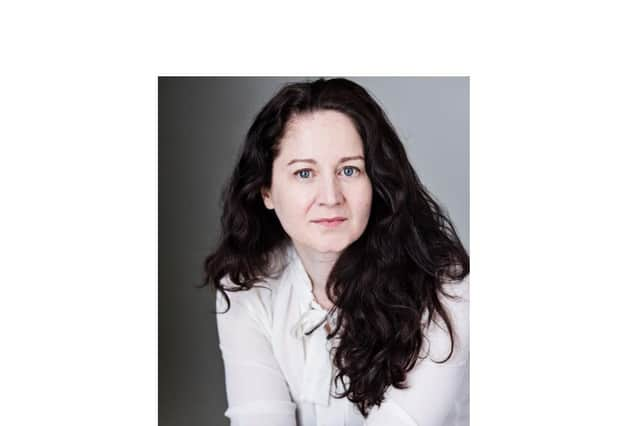The women who made the poppy our symbol of Remembrance


Her nickname is Poppy – thanks to a lisping cousin who could not quite say Provie, and Poppy stuck.
But more seriously, she is delighted to be taking part in a show which tells a fascinating story.
Advertisement
Hide AdAdvertisement
Hide AdThe Poppy Red will be in the Studio in The Hawth in Crawley from Thursday to Sunday, November 11-14 and tells a remarkable tale.
When writing In Flanders Fields in a shell-beaten dugout in the trenches of Ypres, John McCrae could not have predicted the legacy his poem would inspire.
Thanks to his harrowing and poignant ode to the fallen, and also to the hard work of activists Moina Michael and Anna Guerin, the poppy has remained a symbol of sacrifice for a century now.
Provence is taking on the role of Moina Michael, with Fanny Dulin as Anna Guerin and Mark Sean-Byrne playing poet and soldier John McCrae.
Advertisement
Hide AdAdvertisement
Hide Ad“It is my first time with the company. I went through an audition. I audition for the part of Moina. My agent put it through to me and asked if I would be interested.”
It’s a tale which definitely resonates with her. Provence grew up mostly in Canada and comes from a military family. She is thrilled to get back on the stage.
“I did manage to do some filming which was quite strange to do in May. We were in a filming bubble. That was in Kent. I was working on a low-budget feature film, and I was also able to do something online as well. But this is the first time in a rehearsal room, and being back in the theatre I realise I have really missed it so much. I think it is all about being part of a company and interacting with people and playing with them and working in person with them and just seeing their lovely faces and being able to talk through the work. I have just really missed the sense of play that you get when you are doing a piece of theatre. Even if it is something very serious, there is still a sense of play even if it is something which is really moving like this particular play. There is still that lovely sense of playing and working through the text and working with other people.
“Moina Michael was American and I know Americans that have heard about her, but obviously a lot of people won’t have heard about her and I hadn’t, but I suppose she would have said that it was not about her. It was all about supporting the veterans, not about the person, all about helping the people that had fought in the war and supporting the orphans that were left behind.
Advertisement
Hide AdAdvertisement
Hide Ad“But I do find it interesting that she is American because there is quite a bit of bias that the Americans were late into the war and that it was not as important for them as it was for us.
“But the fact is that it was really important for them and they did make a huge contribution.
“I have read a little bit about her already on the side and she was quite remarkable. She was one of seven children, and her father was a general in US Civil War for the south. She was working in Europe at the outbreak of the First World War, and I don’t think she would have been in the position to do what she did if she had not been in Europe at that time. She was instrumental in repatriating more than 10,000 Americans that were stuck in Europe at the outbreak of war and I think you get a sense that here was a woman who was really quite determined and organised and remarkable. She was there and saw the chaos at the outbreak of the war. She describes Europe as a map that had been lit at the edges and was burning in on itself. She was teaching young men who then went off to fight in 17 and 18 and she knew they were there. I think that brought home to her what it was all about.”